Here are the 19 films from Africa and the Middle East. The eleven films from Africa ties the record number of submissions from the continent set in 2020, when screening requirements were eased during the pandemic…. If Algeria hadn’t unexpectedly been absent we’d have a new record.
Number of Countries Participating this year: 19
Number of Countries That Have Participated in the Past: Well, technically
35….but many of them only submitted once or twice.
Number of Debuts: 1, NAMIBIA.
Who’s Missing?: The two most notable absences are regional powerhouses
ALGERIA and LEBANON. Having submitted every year for a decade and
amassing two Oscar nominations, Lebanon was the most surprising absence
worldwide. At least one journalist contacted Lebanon’s Ministry of Culture to
remind them of the deadline but he received no response and it’s unclear why
Lebanon failed to send a film. They will be missed. Algeria usually sends a
film and I read somewhere that 89-year old Palme d’Or winner Mohammad
Lakhdar-Hamina headed a selection committee this year…It’s possible there were
no submissions? Their leading candidate- costume drama “The Last Queen”- was
submitted last year even though it didn’t premiere until 2023. Maybe they
declined to consider it a second time?
ETHIOPIA submitted on a somewhat regular
basis from 2010-2019 but they seem to have given up, and they didn’t have a
good contender this year. They’ll have to submit a film next year or else they’ll
be relegated to getting their committee re-approved again.
The other missing countries have only ever submitted once (Congo-Kinshasa,
Ghana, Lesotho, Mauritania, Mozambique, Niger, Somalia, Syria, Uganda), twice (Kuwait,
Malawi, Tanzania) or three times (Chad, Cote d’Ivoire). From this group, I only
expected to see UGANDA, which debuted last year, submit a film this year.
FRONTRUNNERS:
1. ![]() TUNISIA- “Four Daughters” (Letterboxd: 3.9)
TUNISIA- “Four Daughters” (Letterboxd: 3.9)
2. ![]() JORDAN- “Inshallah A Boy” (3.6)
JORDAN- “Inshallah A Boy” (3.6)
Docudrama "Four Daughters" has been a critical darling since it premiered in Cannes 2022, winning several small awards. Director Kaouther Ben-Hania ("The Man Who Sold His Skin") has made an unusual documentary about a woman with four daughters who wakes up one day to find that the two eldest (and clearly evil) have run away to join ISIS. Ben-Hania uses actresses to replace the two terrorist girls in what most critics say is a very effective piece (I haven't seen it yet). Although there are a lot of documentaries in the mix this year, only two (Ukraine and Tunisia) are considered favorites.
I am probably ranking JORDAN's beautiful character study of a Muslim widow in crisis- "Inshallah A Boy"- too high. Every year, I forget that simply because a film is excellent doesn't mean it will make the shortlist (see "Aurora's Sunrise", "Circus of Life", "Eva Nova", "Tu Me Manques") because AMPAS doesn't always treat little films with the care they deserve. However, in additional to being on the strongest films, it’s also been mentioned as a dark horse contender on several websites and I’m hoping this will be one of the surprises.
DARK HORSES:
3. ![]() TURKEY- “About Dry Grasses” (3.9)
TURKEY- “About Dry Grasses” (3.9)
4. ![]() ISRAEL - “Seven Blessings” (3.6)
ISRAEL - “Seven Blessings” (3.6)
5. ![]() BURKINA
FASO- “Sira” (3.3)
BURKINA
FASO- “Sira” (3.3)
6. ![]() NIGERIA- “Mami Wata” (3.5)
NIGERIA- “Mami Wata” (3.5)
ISRAEL has sent a raucous family dramedy about a week-long series of family dinners, uniting a large extended Moroccan Jewish family for the wedding of an estranged daughter. With so many characters, the film starts off incredibly confusing but the director manages to fix that within 20 minutes. The film, about a woman with two mothers who are also sisters (long, long story) is the sort of film that I think Oscar would have loved 10-15 years ago....It's a great pick, but I'm not certain it can make the Top 15.
Unfortunately, TURKEY (Turkiye?) has a better chance than Israel. I don't like Nuri Bilge Ceylan's overlong, virtually silent films and "About Dry Grasses" is his longest yet (3 hours and 18 minutes)....but this story of a village teacher does have some fans. I'm unlikely to see it.
The leading candidates from sub-Saharan Africa are the buzzy candidates from Burkina Faso (back after a 33-year absence) and Nigeria (here for the first time since 2020). People don’t seem to love BURKINA FASO's “Sira”, a story of survival about a young bride who is kidnapped, raped and left for dead in the desert after surviving an attack on her wedding caravan. The level of filmmaking here is incredible given the difficult environment in rural Burkina Faso, which is suffering from an Islamic insurgency in real life. I admit some of the acting is shaky at times but overall the non-professional actors do a good job. This is a brave film that is exciting, topical and ultimately uplifting. It’s one of my favorites of the 40 I’ve seen. “Mami Wata”, from NIGERIA, got an Independent Spirit nomination for Best international Film, which is an important precursor. This B&W fantasy film steeped in West African mythology focused on a village seeking the help of a mermaid goddess to combat a local plague killing local children. Most of the film’s notices are for its gorgeous cinematography so I think it will miss the shortlist stage.
MIDDLE OF THE PACK
7. ![]() MOROCCO- “Mother of All
Lies” (3.5)
MOROCCO- “Mother of All
Lies” (3.5)
8. ![]() SUDAN- “Goodbye Julia” (3.7)
SUDAN- “Goodbye Julia” (3.7)
9. ![]() YEMEN- “The Burdened” (3.4)
YEMEN- “The Burdened” (3.4)
10. ![]() IRAQ- “Hanging Gardens” (3.3)
IRAQ- “Hanging Gardens” (3.3)
These four films from the Arab world will make their countries proud, though they probably won’t be able to breakthrough. Honestly, I really didn’t like “Mother of All Lies”, a deeply personal documentary about a woman interviewing family members and neighbors to learn about a secret from the past. It’s very much like “The Missing Picture” but I felt the film takes an hour to get to its main plot and I had little interest by then. But I seem to be in the minority; the film has great reviews (and the conservative grandma could have a career in acting!)
The other three films are important stories from countries plagued by recent wars. YEMEN deals with an unwanted pregnancy. IRAQ uses the humorous motif of a sex doll (abandoned by US soldiers) to explore serious issues of morality and violence in Iraqi society. SUDAN explores the relationship between a Muslim employer and her Christian South Sudanese employee, following a civil war influenced by religion. Though I’ve only seen the film from Iraq, these are probably three of the most interesting and important films on the list. “Hanging Gardens”, about an impoverished boy and his father who make a living scavenging rubbish dumps, was clearly made under difficult conditions. It’s a slow and quiet film, that mixes a great dark sense of humor with pathos and tragedy. I’m so happy to see all three countries participating. Of these three, Sudan is the most likely to break through.
LOWER DOWN THE LIST:
11. ![]() EGYPT- “Voy! Voy! Voy!” (3.7)
EGYPT- “Voy! Voy! Voy!” (3.7)
12. ![]() PALESTINE- “Bye Bye Tiberias” (3.7)
PALESTINE- “Bye Bye Tiberias” (3.7)
13. ![]() IRAN- “The Night Guardian” (3.2)
IRAN- “The Night Guardian” (3.2)
14. ![]() SENEGAL- “Banel & Adama”
(3.3)
SENEGAL- “Banel & Adama”
(3.3)
After taking last year off, EGYPT is back in the race with a well-reviewed but thoroughly commercial effort- "Voy! Voy! Voy!", about a man who pretends to be blind in order to join a sports team. In a less PC and less embarrassingly "woke" Hollywood environment, it would be ripe for an American remake. This is probably a film that will make audiences laugh (unless they are "woke") but not one they will award an Oscar to. It will be interesting to see if PALESTINE (or ISRAEL) will get sympathy votes for the war in the Middle East....After "Klondike" was snubbed last year, I think not. "Bye Bye Tiberias" is a very personal documentary about the life and family of acclaimed Israel-born Palestinian Hiam Abbass, directed by her daughter Lina. The normally private Abbass, one of the most prolific and talented actresses working in international cinema, discusses her family's history during the Nakba, her marriages and her career. It's an interesting documentary but it's also very small and intimate.
SENEGAL sent "Banel & Adama" (Cannes) a weird drama about two newly married lovers in a village, including a reluctant young chief who- per tradition- marries his brother's wife after his death. The fanatically lovestruck wife is devoted to her husband, adamantly opposed to having a child, and obsessed with a series of ancient houses buried under sand nearby. It's a weird film that I didn't really like while watching it but which I couldn't stop think about after.
Lastly, we have "The Night Guardian" from IRAN, described as a "downbeat social drama set amid Iran's swelling underclass". Iran often does well with Oscar, but this film is one of the most obscure on this year's list and doesn't seem to have gotten any play. Although most Oscar voters probably won't realize, the film's selection was protested by independent Iranian filmmakers so that could cause some heartache too.
BETTER LUCK NEXT YEAR:
15. ![]() SAUDI ARABIA- “Alhamour H.A.” (3.4)
SAUDI ARABIA- “Alhamour H.A.” (3.4)
16. ![]() NAMIBIA-
“Under the Hanging Tree” (2.4)
NAMIBIA-
“Under the Hanging Tree” (2.4)
17. ![]() KENYA- “Mvera” (3.0)
KENYA- “Mvera” (3.0)
18. ![]() SOUTH AFRICA- “Music Is My Life” (3.0)
SOUTH AFRICA- “Music Is My Life” (3.0)
19. ![]() CAMEROON- “Half Heaven” (2.5)
CAMEROON- “Half Heaven” (2.5)
Welcome NAMIBIA! First of all, I loved "Under the Hanging Tree", the first-ever submission from the southwestern African country. It's a weird mix between David Lynch (who I love) and Nuri Bilge Ceylan (who I don't), set against the background of a bizarre murder case in the Namibian savannah. The film is crazy and doesn't always make sense, but I really enjoyed it. But it's too out-there to contend here.
The three other Anglophone African countries in this category have even less of a chance. KENYA sent "Mvera", a low-budget drama about human and organ trafficking. The cinematography looks great but the film has no buzz and it's the only film that doesn't have any votes on IMDB and only four on Letterboxd. CAMEROON sent a weird drama in Pidgin English about Evangelical Christianity that will probably make voters uncomfortable, while SOUTH AFRICA sent a rather routine music documentary. Voters may be impressed by the Zulu-language music but won't remember the film- an homage to an obscure South African group that has performed with a number of very famous Hollywood artists.
As for SAUDI ARABIA, they've sent what I've heard is a very entertaining "Wolf of Wall Street"-type comedy and the first-ever "R-rated" Saudi feature. Though I don't think Oscar voters will vote for such a commercial film, it's great to see Saudi Arabia - where cinema was illegal until a decade ago- branch out into a new genre of film.
Genres: We have four documentaries (Morocco, Palestine, South Africa and Tunisia), two comedies (Egypt and Saudi Arabia) and one fantasy film (Nigeria).
I’ve Already
Seen: 8- Burkina Faso, Iraq, Israel, Jordan, Morocco, Namibia, Palestine and
Senegal. My favorites were Burkina Faso and Jordan.
Film I’m Most Excited To See: Definitely
“The Burdened” from Yemen, because I loved the director’s last film so much.
Number I Predicted Correctly: 10/19
- Cameroon, Iraq, Jordan, Namibia, Nigeria, Senegal, Sudan, Tunisia, Turkey and
Yemen
Big Four Festivals:
·
Berlin-
Burkina Faso (Panorama Audience
Award), Yemen (Amnesty International Award)
·
Cannes-
Jordan, Morocco (Best Director,
UCR + Documentary Prize), Senegal, Sudan (Freedom Prize, UCR), Tunisia (Documentary
Prize), Turkey (Best Actress)
·
Sundance-
Nigeria (Best Cinematography)
·
Venice-
Iraq, Palestine
Women Directors- 6 films had female directors: Kaouther Ben Hania (Tunisia), Asmae El Moudir (Morocco), Ayelet Menahemi (Israel), Lina Soualem (Palestine), Ramata-Toulaye Sy (Senegal), and Apolline Traoré (Burkina Faso)
Oldest and Youngest Directors- I’m not 100% sure but probably Nuri Bilge Ceylan (Turkey), who is 64, and Daudi Anguka (Kenya) who is 30.
Languages Represented- This is a confusing question
since roughly half the films are multi-lingual. Eight films are totally in Arabic,
while two more (Israel and Palestine) are partially in Arabic. Two films are
entirely in Persian and Turkish. Two African films are mostly in dialects of
the Fula languages (Burkina Faso and Senegal). Other languages: Afrikaans (Namibia),
Fon (Nigeria), French (Burkina Faso, Israel, Palestine), Hebrew (Israel), Pidgin
English (Cameroon, Nigeria), Swahili (Kenya) and Zulu (South Africa). The films
from Kenya, Namibia, and South Africa are also largely in English.
How Many Have a Chance at the Shortlist?- Maybe
seven?
Most Likely to Get Nominated for the First Time- Turkey
Buzziest Films: “Four Daughters”, followed
by “Mami Wata” and “About Dry Grasses”
Letterboxd Ratings (as of December 18, 2023): Best: Tunisia
and Turkey (3.9) Worst: Namibia (2.4)
Dumbest Decision: Most of these countries
made smart decisions (or, alternately, selected the only reasonable film
eligible…) Of course, I think that Cameroon, Iran and South Africa could have made
better choices, but it’s possible the films I have in mind didn’t get a proper
domestic release. The dumbest decision was- of course- LEBANON which had
a number of eligible films, including the acclaimed “Dirty, Difficult, Dangerous”
(Venice 2022)…but sent nothing.
Controversies and Changes: The biggest
controversy came from IRAN. After the announcement of “The Night
Guardian”, a group of exiled filmmakers released a statement calling the
selection unrepresentative of Iranian cinema and appealing to AMPAS to allow a
film to be selected by a non-government affiliated organization.
Oscar History: Kaouther
Ben Hania is the only Oscar nominee here. She got a surprise (but
well-deserved) Oscar nomination for “The Man Who Sold His Skin” three years
ago, and she was also selected in 2018 for “Beauty and the Dogs”, which was my
favorite film of that year.
Nuri Bilge Ceylan is representing Turkey for the sixth time
since 2003, and is one of the most submitted directors from any country. He got
Turkey to the shortlist for the first and only time in 2008, with “Three
Monkeys”.
Reza Mirkarimi was selected to represent Iran for the
fourth time after “So Close, So Far” (2005), “Cube of Sugar” (2012), and “Today”
(2014), although Iran withdraw “Cube of Sugar” due to an ill-advised political
boycott.
Here for the second time: Amr Gamal (Yemen; “10 Days Before
the Wedding”) and Enah Johnscott (Cameroon, “Fisherman’s Diary”)
Most Notable Omissions: Probably the most
important omissions are were “Terrestrial Verses” (Cannes...also known in some countries as "Kafka in Teheran"), which couldn’t pass
the censors in Iran, and political thriller “Burning Days” (also Cannes), which
lost a competitive race in Turkey.


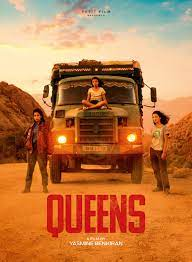
Also absent: “The Last Queen” (Algeria), “Mambar Pierrette” (Cameroon…maybe eligible next year???), “The Rain Bride” (Iraq), “Delegation” and “Vanishing Soldier” (Israel), “Queens” (Morocco), “Alam” (Palestine), “Within Sand” (Saudi Arabia), “Father and Soldier” (Senegal), “Harka” (Tunisia), and “Black Night” (Turkey).
Most Famous Face: Hiam Abbass, the star and subject of “Bye Bye Tiberias” (Palestine). It’s true that music mega-stars like Dolly Parton and Paul Simon were interviewed for “Music is My Life” (South Africa), but I don’t think that counts.
Last Year’s Race: I saw 12 out of 16 films
last year and there were some truly amazing films…that Oscar mostly ignored. My
favorite was “World War III” from Iran (A), a twisty drama in the Farhadi tradition.
I can’t understand why it hasn’t attracted more international attention. “Mediterranean
Fever”, a jet-black comedy from Palestine was also brilliantly plotted (A).
I also loved “Farha” (Jordan, A-), “Blue Caftan” (Morocco, A-)
and “Cinema Sabaya” (Israel, A-).
I also saw the films from Saudi Arabia, Iraq and Uganda (B+),
Lebanon (B), Tunisia and Turkey (B-) and Tanzania (C).
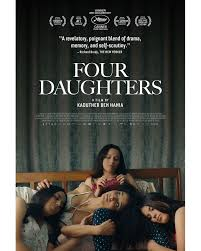
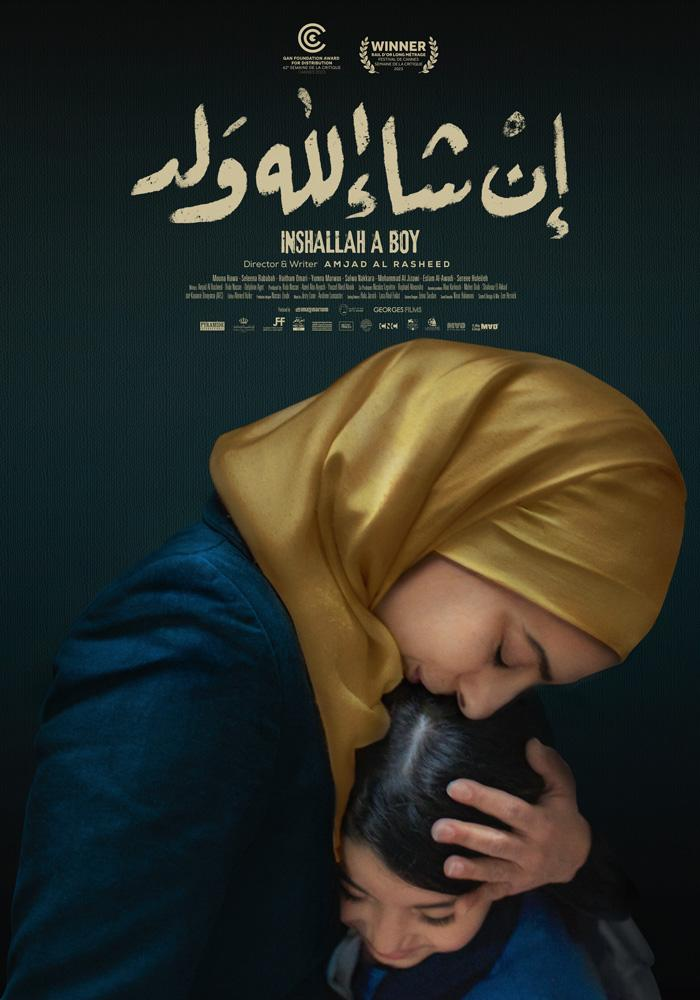


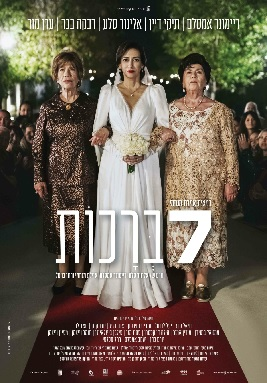

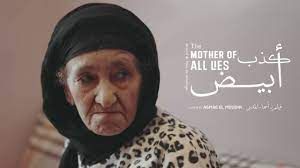
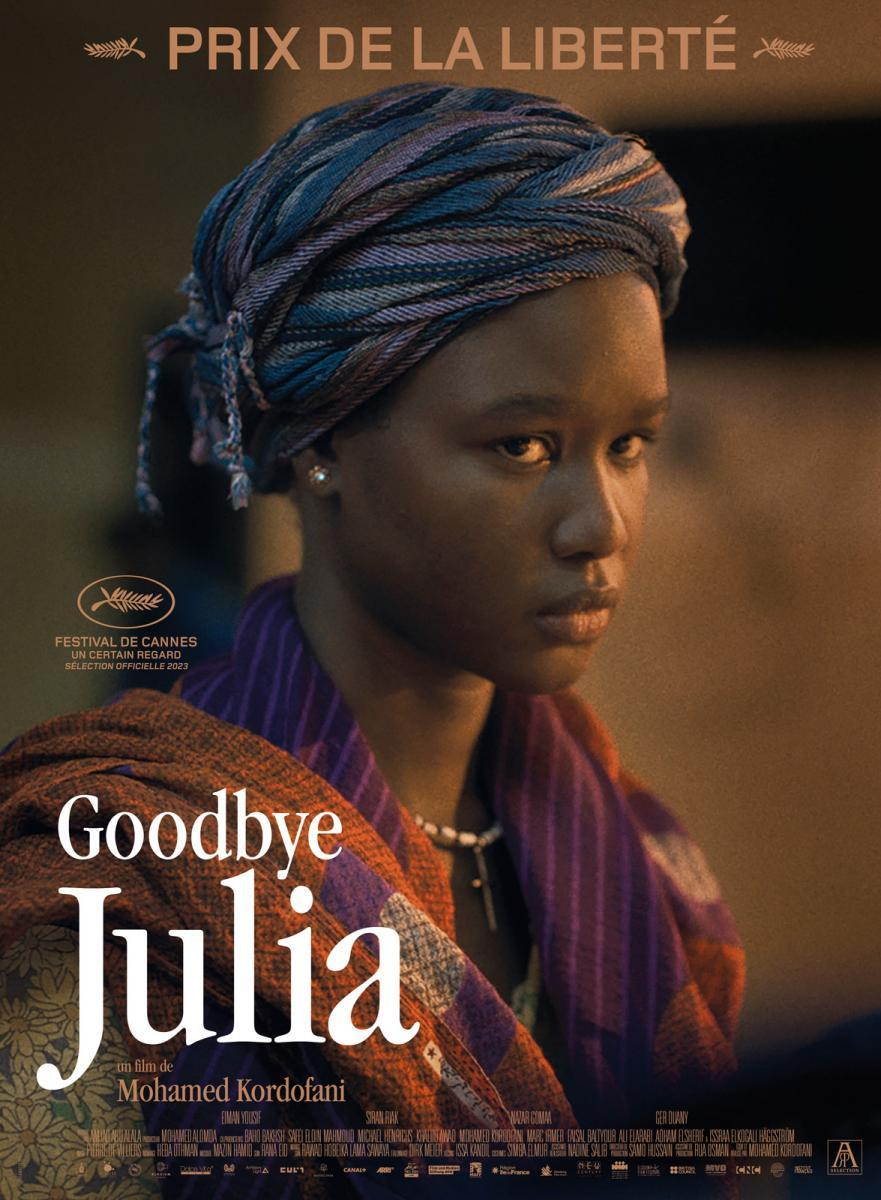













2 comments:
Tunisia - Can't wait to see "Four Daughters"). “Beauty and the Dogs”, you have mentioned, was also my favorite film. I'm in love with Kaouther Ben Hania's cinema, each time presenting something completely different (including "The Blade of Tunis").
Jordan - Unlike your favorites you have mentioned, “Inshallah A Boy” has much more buzz (at least it was screened at the sidebar at Cannes) and its feministic theme is much more appealing. Though it is not among my favorites (nothing wrong about it, just didn't like it enough) so I would not rule out the possibility of it being shortlisted.
Israel - You named it and absence from the festival arena would not help. Although, the war may drive attention to the film and make the voters watch it (in this stage, it's the most important goal if the film is fine).
Turkey - Academy seems to side with you, they mostly ignored Ceylan's cinema. "About Dry Grasses" doesn't differ much from his previous films and being the longest one I can hardly see in moving forward.
Burkina-Faso - It's a much more important film rather than very good. Besides some acting issues you've mentioned (though the main one was pretty good), its last part is too unrealistically heroic. With this being said, if the members would like to push forward an African film "Sira" can be a solid option.
Nigeria - Personally, I was bored, but the cinematography indeed looks fantastic.
Sudan - Basically, the same as "Sira" (in terms of importance vs quality), I preferred Burkina-Faso.
Senegal - In my top 5 of 2023 films I have seen, capturing with its beauty, metaphors, and fairytale-like love story. Although, I know that I'm in the minority.
Saudia Arabia - Besides being fun to watch, it was indeed a very pleasant surprise in terms of what is shown in film. Like in the first few minutes we already see men drinking, gambling and having a conversation about sex.
Iran - From the absent (and banned) films, you can also mention the underground drama "Critical Zone", the Locarno Winner. It's an almost psychedelic and very energetic journey of a drug dealer through the night streets of Tehran.
Thanks!
What was your own opinion of "Seven Blessings"? Do you believe it should be in the Top 15.
I'm usually a cynic but I loved the ending of "Sira". I usually respect filmmakers for handing the audience a sad and tragic ending ("The Mist"!) But Burkina Faso is suffering so much that I thought a surprising happy ending was the perfect way to end it. (I just saw "The Delinquents", a good film with possibly the worst ending of the year).
I'll get access to the films from Nigeria and Tunisia before the end of the year...
Post a Comment